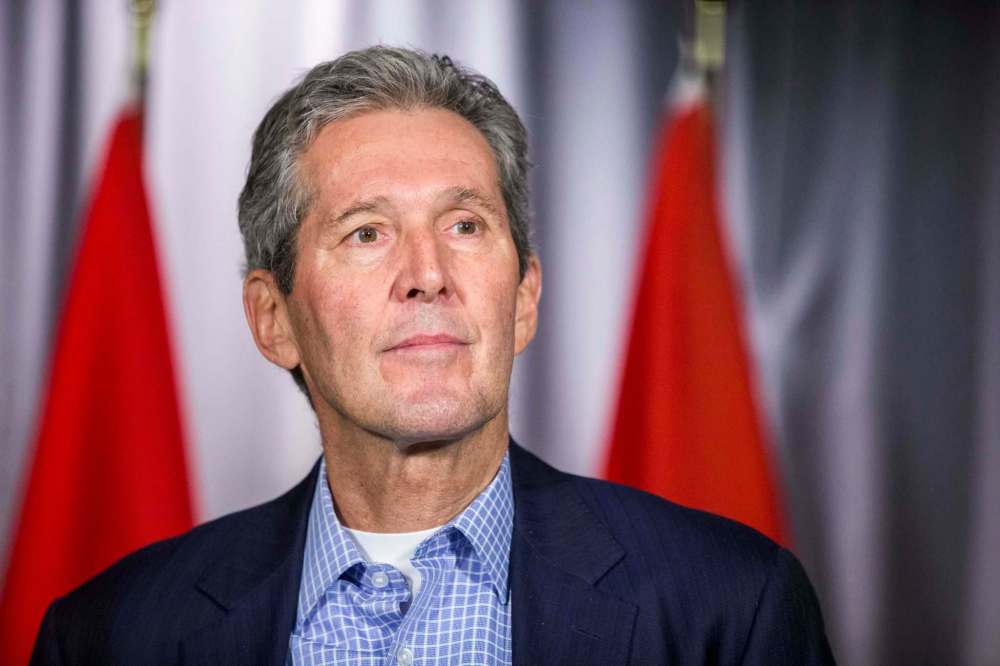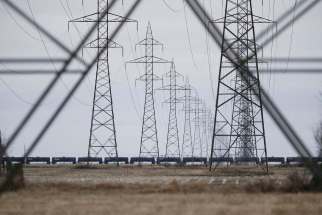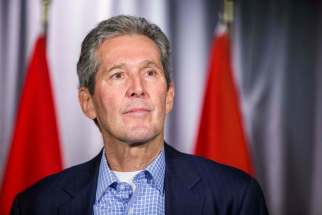Carbon-tax compromise remains elusive goal
Read this article for free:
or
Already have an account? Log in here »
To continue reading, please subscribe:
Monthly Digital Subscription
$0 for the first 4 weeks*
- Enjoy unlimited reading on winnipegfreepress.com
- Read the E-Edition, our digital replica newspaper
- Access News Break, our award-winning app
- Play interactive puzzles
*No charge for 4 weeks then price increases to the regular rate of $19.00 plus GST every four weeks. Offer available to new and qualified returning subscribers only. Cancel any time.
Monthly Digital Subscription
$4.75/week*
- Enjoy unlimited reading on winnipegfreepress.com
- Read the E-Edition, our digital replica newspaper
- Access News Break, our award-winning app
- Play interactive puzzles
*Billed as $19 plus GST every four weeks. Cancel any time.
To continue reading, please subscribe:
Add Free Press access to your Brandon Sun subscription for only an additional
$1 for the first 4 weeks*
*Your next subscription payment will increase by $1.00 and you will be charged $16.99 plus GST for four weeks. After four weeks, your payment will increase to $23.99 plus GST every four weeks.
Read unlimited articles for free today:
or
Already have an account? Log in here »
Hey there, time traveller!
This article was published 22/01/2020 (2147 days ago), so information in it may no longer be current.
Premier Brian Pallister and Prime Minister Justin Trudeau sought this week to assure Manitobans they are fully engaged in a “dialogue” to break the impasse between the provincial and federal governments on carbon taxes. There are good reasons to doubt those assurances.
Manitoba has been fighting with Ottawa since 2018 when, without warning or adequate explanation, Mr. Pallister killed plans to introduce his own $25-per-tonne carbon tax. As a result of that decision, Manitobans this past year were forced to pay a $20-per-tonne federal levy, known as the “federal backstop.” The levy increases to $30 per tonne this year, and Ottawa plans to increase the backstop annually until it is at least $50 per tonne.
Mr. Pallister says he wants consent from Ottawa for Manitoba to levy its own tax at a level that is below the backstop. Although Mr. Trudeau has rejected that proposal before, following a meeting between the two leaders this week in Winnipeg during a federal cabinet ministers’ retreat, there was a glimmer of hope that a compromise might be available.

Don’t hold your breath. Although the language was conciliatory, there realistically is very little room here for a compromise agreement.
Mr. Pallister claims he is willing to discuss a new Manitoba green plan with a revised price on carbon, but he made it clear he does not want a tax that is going to slowly increase. And that means once you strip away all the diplomatic language, Mr. Pallister appears not to be offering Mr. Trudeau a negotiation, but rather an ultimatum.
Mr. Pallister claims he is willing to discuss a new Manitoba green plan with a revised price on carbon, but he made it clear he does not want a tax that is going to slowly increase. And that means once you strip away all the diplomatic language, Mr. Pallister appears not to be offering Mr. Trudeau a negotiation, but rather an ultimatum.
Of course, Mr. Pallister’s position suggests there is a quid pro quo: Mr. Trudeau needs help wooing other aggrieved Conservative premiers who have declared a holy war on the federal carbon tax. At a news conference following his meeting with the prime minister, Mr. Pallister indicated Manitoba is willing to be a “bridge” to calm future skirmishes with the leaders of Canada’s “conservative movement” — but only, it seems, if he gets a special deal that was not offered to other provinces.
That kind of deal will be hard to come by. Mr. Trudeau and his cabinet ministers have made it clear that Ottawa is not backing away from its desire to see a slowly escalating carbon tax imposed from coast to coast to coast.
Mr. Pallister has hinted that he may be willing to move off his number to ease negotiations. If that’s the case, then he should make his new number public as soon as possible and seek support from Ottawa. The longer Mr. Pallister delays, the longer Manitobans will have to wait for meaningful climate-change policy.
Although he has often lauded the Made-in-Manitoba Climate and Green Plan, it has been mostly a bust. Big-ticket items that would really reduce our carbon emissions — subsidies for electric cars, electric buses in Winnipeg and the electrification of gas-fired farm machines — have not been undertaken because Manitoba is not collecting its own tax and thus has no money dedicated to such initiatives. Ottawa is remitting funds from the federal levy to Manitoba, but most of that money is going to individual households in the form of rebates.
After nearly two years of continuing disagreement, a compromise by both leaders that leads to a meaningful and effective carbon tax plan would be in the best interests of all Manitobans. And, of course, of the planet.













